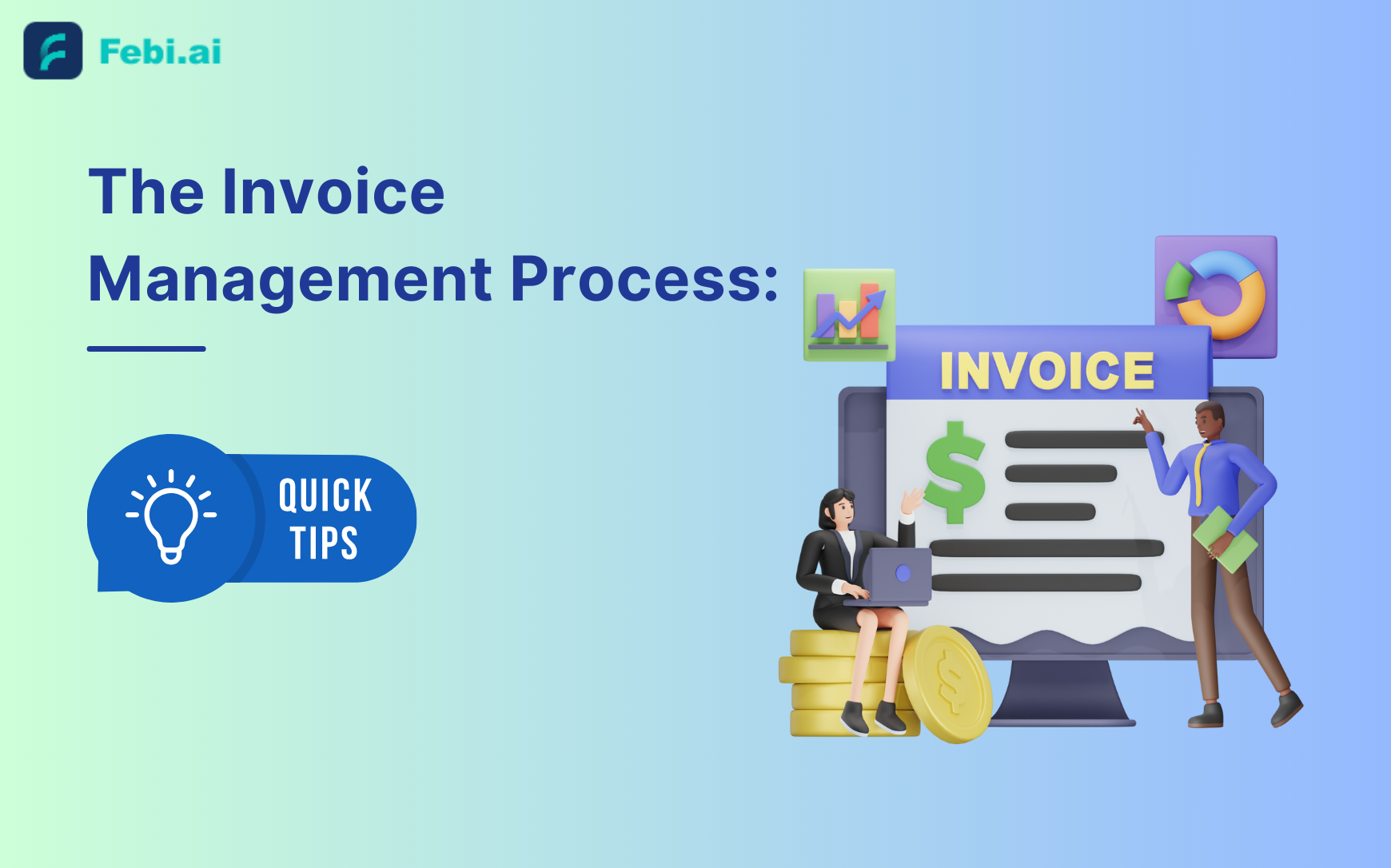The Invoice Management Process: A Comprehensive Guide

Strong 8k brings an ultra-HD IPTV experience to your living room and your pocket.
Introduction
Invoice management is a critical process in any business, ensuring accurate and timely payment of invoices. A well-structured invoice management process helps businesses maintain cash flow, avoid late fees, and foster strong relationships with vendors. This article explores the importance of invoice management, the steps involved, challenges faced, and best practices for optimizing the process.
What is the Invoice Management Process?
The invoice management process involves the receipt, verification, approval, and payment of invoices for goods or services provided to a business. This process ensures that financial transactions are accurately recorded and managed efficiently. An effective invoice management system minimizes errors, reduces processing time, and enhances financial control.
Importance of an Efficient Invoice Management Process
Improves Cash Flow Management – Timely invoice processing ensures that payments are made on time, preventing cash flow disruptions.
Enhances Vendor Relationships – Paying invoices promptly builds trust with suppliers and strengthens business partnerships.
Reduces Errors and Fraud – A structured process prevents duplicate payments, overpayments, and fraudulent invoices.
Ensures Compliance – Following a standardized invoice management process helps businesses comply with tax regulations and financial reporting standards.
Boosts Productivity – Automating invoice processing reduces manual work, allowing employees to focus on strategic tasks.
Steps in the Invoice Management Process
1. Invoice Receipt
Invoices are received from vendors via email, mail, or electronic invoicing systems. It is essential to ensure that the invoices contain the correct details, such as:
- Vendor name and contact information
- Invoice number and date
- Description of goods or services
- Payment terms and due date
- Amount payable
2. Invoice Verification
Before processing payment, invoices must be verified for accuracy. This step involves:
- Matching the invoice with purchase orders (PO matching)
- Confirming the receipt of goods or services
- Checking for duplicate invoices
- Ensuring the amounts and payment terms are correct
3. Approval Workflow
Invoices must go through an approval process based on the company’s internal policies. The approval workflow typically involves:
- Reviewing the invoice by department heads or finance teams
- Obtaining necessary approvals before payment
- Escalating any discrepancies for resolution
4. Invoice Payment Processing
Once approved, the invoice is scheduled for payment. Payments can be made via various methods, including:
- Bank transfers
- Checks
- Credit cards
- Automated Clearing House (ACH) payments
Businesses must ensure that payments are made within the agreed-upon terms to maintain good vendor relationships.
5. Record-Keeping and Auditing
Maintaining accurate invoice records is crucial for financial audits and tax reporting. Businesses should:
- Store digital copies of invoices
- Keep a record of payment transactions
- Regularly review invoices for discrepancies
- Common Challenges in Invoice Management
Manual Processing Delays – Relying on paper-based invoices and manual entry increases processing time and errors.
Duplicate or Fraudulent Invoices – Without a proper verification system, businesses may pay duplicate or fraudulent invoices.
Lost or Misplaced Invoices – Poor record-keeping can lead to misplaced invoices, causing delays in payments.
Late Payments and Penalties – Inefficient processes may result in missed payment deadlines and penalty fees.
Lack of Integration with Accounting Systems – Failure to integrate invoice management with accounting software can lead to data discrepancies.
Best Practices for Optimizing the Invoice Management Process
1. Implement an Automated Invoice Management System
Automation reduces manual work, speeds up processing, and minimizes errors. Businesses can use invoice management software to:
Automatically capture invoice data
Match invoices with purchase orders
Send notifications for approval
Process payments efficiently
2. Standardize Invoice Processing Procedures
Creating a standardized process ensures consistency and accuracy. Companies should define clear policies for:
Invoice submission and approval
Payment schedules
Dispute resolution
3. Use Electronic Invoicing (E-Invoicing)
Switching to e-invoicing reduces paperwork, improves tracking, and ensures compliance with tax regulations. E-invoicing also allows for real-time invoice validation and approval.
4. Establish Clear Communication with Vendors
Maintaining transparent communication with suppliers helps prevent invoice disputes and delays. Businesses should:
Clearly define payment terms and conditions
Provide vendors with invoice submission guidelines
Regularly update vendors on payment status
5. Regularly Audit Invoice Processes
Conducting periodic audits helps identify inefficiencies, fraud risks, and compliance issues. Businesses should:
Review past invoices for inconsistencies
Monitor approval workflows for bottlenecks
Assess financial reports for errors
Benefits of Automating the Invoice Management Process
Faster Processing Time – Automation significantly reduces the time required to process invoices.
Improved Accuracy – Automated matching of invoices with purchase orders minimizes errors.
Cost Savings – Reducing manual work lowers administrative costs and prevents late payment fees.
Better Financial Control – Real-time tracking of invoices enhances budget management and forecasting.
Enhanced Compliance – Automated systems ensure adherence to tax laws and financial regulations.
Conclusion
A well-optimized invoice management process is crucial for maintaining financial stability and business efficiency. By implementing automation, standardizing procedures, and fostering vendor relationships, businesses can streamline their invoice workflows, reduce errors, and improve cash flow management. Investing in a robust invoice management system not only saves time and money but also enhances overall operational efficiency, making it a vital component of financial success
Note: IndiBlogHub features both user-submitted and editorial content. We do not verify third-party contributions. Read our Disclaimer and Privacy Policyfor details.







